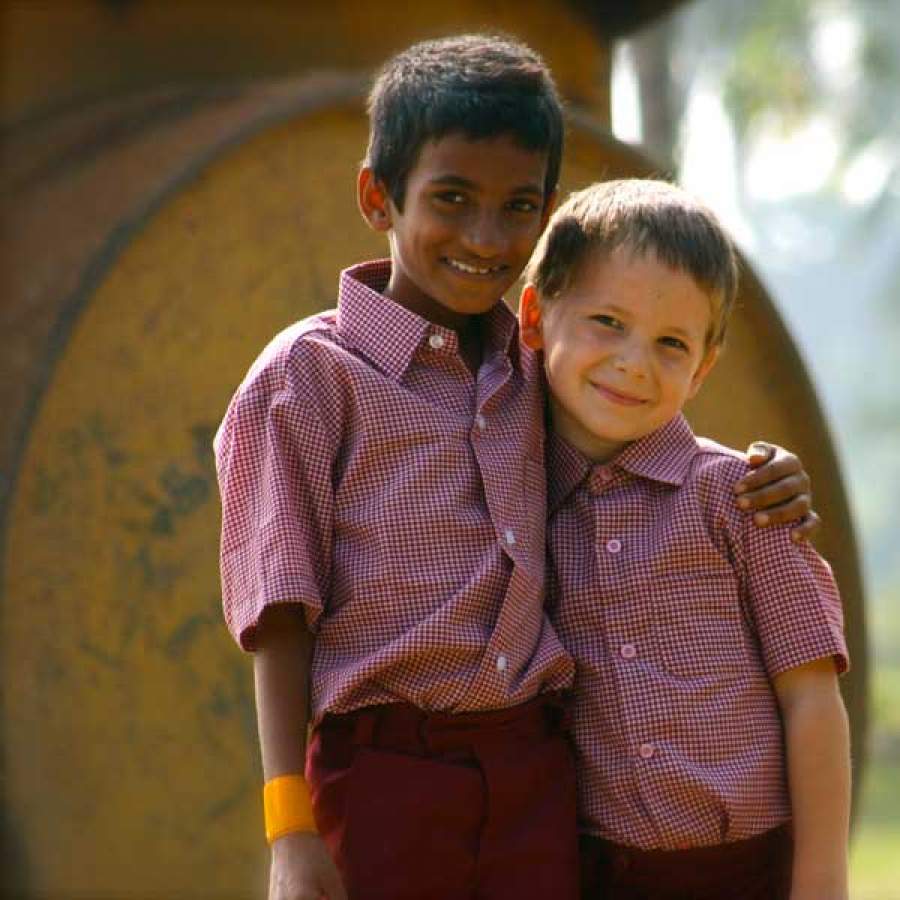Travel changes you. It's mind-expanding, growth-producing, spirit-enhancing. That's why we love to do it—it alters who we are, down to the very soul. But then something happens. We settle down, have kids, put them in school and then it seems our travel days are over—at least for a very long time. Guess you'll just have to wait until summer vacation and go to Disneyland.
There's no other alternative, is there? Enrolling your kids in school is what's best for their future, right?
That seems to be a prevailing philosophy, but my family of seven has never subscribed to it. From the time our oldest was four, the world has been our classroom and experience our teacher.
So how can you actually make travel a part of your children's educational plan, instead of some far-off fantasy? Here are a few tips from expert world-schoolers:
Before you go: What kind of educational experience?
Chances are that your educational goals may be affected by the age of your children. Are they young and you want to immerse them in a new language? Then maybe you'll want to pick a country in Central or South America, which are family-friendly and where they can learn Spanish. Maybe your children are older and you want them to study the arts and music. Then perhaps you should go to Europe. Are you looking for a culture shock experience to help with some entitlement issues? Somewhere like India or Lebanon may be what you're after.
For Jennifer Miller, who biked with her husband and four children across Europe and Africa, cultural immersion was at the top of her list. Children are very resilient and can adapt easily to change, especially when given a good example by their parents.
“One of the things we've wanted to accomplish with our children through world travel has been to help them see that people are people, no matter where they live, what they look like or how they believe,” says Miller. “Spending three months living deep in the Muslim world (of Tunisia) allowed our American kids to see Muslims as people, not propaganda posters."
Home base or on the move?
When KC Hawrylyshen went to southern Spain with her sister and two nieces, they rented a cottage for two months, thinking that it would be more stable for the children. The result? “I was stir-crazy,” says Hawrylyshen. Although her nieces adjusted to attending school everyday, she realized that they would have adjusted just as well to exploration.
On the other hand, my own family is slowly driving from Alaska to Argentina because we love change. After a year on the road, we reached Guatemala, where we decided it was time to stay put. We've been here nearly four months, with no signs of getting back on the road—yet.
Children are resilient and adapt easily to change, especially when their parents set a good example.
Distance learning—you don’t have to know everything yourself.
As long as you have an Internet connection, your children can study math, science, literature, humanities, art and music—all from expert educators. They can study history before they head out to climb ancient pyramids. Some great websites to check out include IXL.com (for math), Starfall.com (for reading), KhanAcademy.org and YouTube.com (for learning almost anything).
Don't forget the books (or the e-reader).
The 32nd president of the United States, Theodore Roosevelt, spent his formative years traversing continents with trunks full of books as his companions. But with today's technology, you don't need to pack trunks of books—you can just bring an e-reader. Our kids have loved reading Robinson Crusoe and Gulliver's Travels and then acting out the characters in their own travel adventures.
Don't worry about your kids falling behind.
In more ways than you know, your kids will actually be getting ahead by taking time off from school to travel. Don't waste the adventure by worrying if they're falling behind. If and when they return to school, they'll be able to do the make-up work and jump through any other hoops necessary for them to catch up to their peers.
Nancy and John Vogel, both teachers, pulled their 11-year-old twins out of school for three years to ride their bikes from Alaska to Argentina. Once the adventure was over, the family returned to Boise, Idaho, where the boys quickly assimilated back into school.
“We had absolutely no issues at all,” says Nancy of the transition. “Kids are so flexible and willing to adapt to whatever comes their way, that they handled the structure of it immediately.”
Travelling as a family will add the kind of depth to your children's education—not to mention your own. Real education isn't about keeping up to a grade level. Real education can’t be tested and, in fact, it can’t even be taught—it has to be experienced.
Rachel Denning is a mother, mentor, writer and photographer. She and her husband travel long-term with their five children, educating them through experience and personal involvement in the world and its diversities. She writes about their adventures at DiscoverShareInspire.com.
Add this article to your reading list


